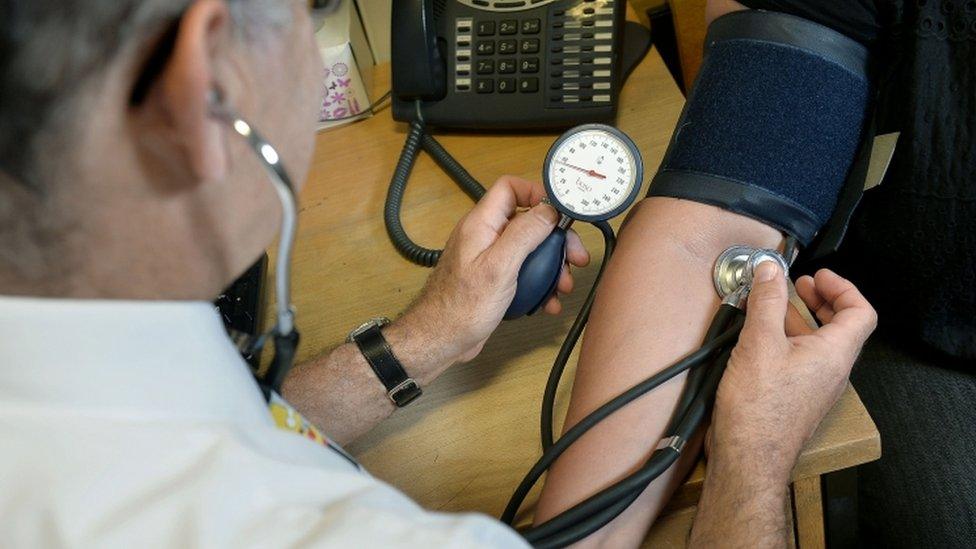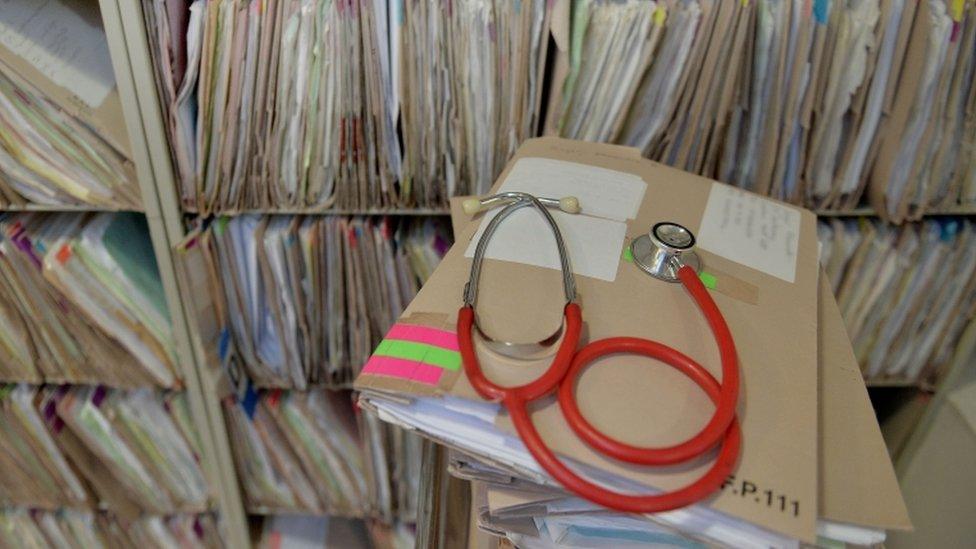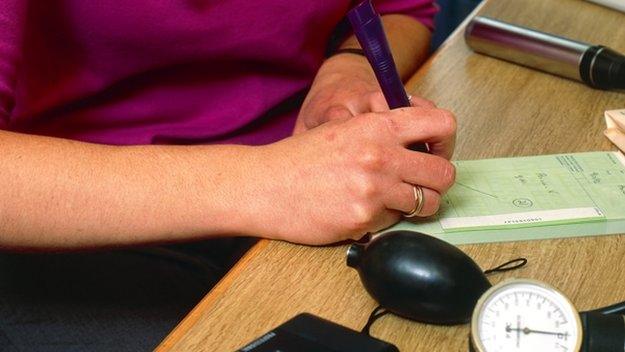Jeremy Hunt acts on 'time-wasting' referrals
- Published

When patients miss outpatient appointments they often have to go back to their GPs to be referred again
Plans to stop GPs having to rearrange hospital appointments for patients have been set out by the government.
The Department of Health says GPs' time is wasted by referring patients back to hospitals for outpatient appointments.
The move is part of a range of measures being announced by Health Secretary Jeremy Hunt, including "Ofsted-style ratings" for NHS services in England, such as cancer and mental health care.
"Simplistic" ratings would not improve care, doctors union the BMA said.
'Too many obstacles'
When people miss outpatient appointments they often have to go back to their GPs to be referred again for their hospital treatment.
This adds to the mounting workload at practices.
The Department of Health says moves will be made ensure hospitals' local policies prevent these cases having to go back to GPs.
According to the department, 2.5% of GPs' time is taken up by re-referrals - that is equivalent to the amount of time spent seeing about six million patients per year in England.
Citing a report by the NHS Alliance, officials say that up to 27% of GP appointments could potentially be avoided if there was more co-ordination between GPs and hospitals and better use of technology.
Measures to provide ratings for the performance of the NHS in local areas are also being unveiled.

The British Medical Association said the plan to simplify the GP referral system was a "step in the right direction"
Currently ratings are provided by the Care Quality Commission for hospitals and other trusts.
The plan is to do the same for the organisations which pay for healthcare in local areas, known as clinical commissioning groups.
From mid-2016, their performance in areas like cancer, dementia and diabetes will be published by NHS England.
Speaking to BBC Breakfast, Mr Hunt said some areas of the NHS, such as mental health services, have been "very opaque for a very long time" but that new ratings would "shine a light on the best practice" and areas for improvement.
"We are being bold enough and brave enough to do what no other country is doing, which is actually be honest about the quality of care in different places," he said.
He said the ratings would be done in a "light-touch way", and would give the public confidence that something was being done to improve underperforming services.
"By being more transparent than ever before about crucial services and freeing up more time for GPs to care, we really can make NHS patients the most powerful in the world."
'Right direction'
Dr Maureen Baker, chairman of the Royal College of GPs, said: "Measures to reduce bureaucracy in general practice, which will allow us to spend more time with our patients and streamline our patients' experience of the health service, are encouraging.
"We look forward to hearing more details about these plans.
"However, we question whether the introduction of Ofsted-style ratings systems for area health teams will improve patient care whilst there is no evidence that this does improve outcomes in a health setting."
Dr Chaand Nagpaul, of the British Medical Association, said the plan to simplify the GP referral system was a "step in the right direction".
But he added that he did not believe that "simplistic" ratings of commissioning groups would lead to better care or give an accurate picture of services in local areas.
- Published19 June 2015

- Published9 April 2015
